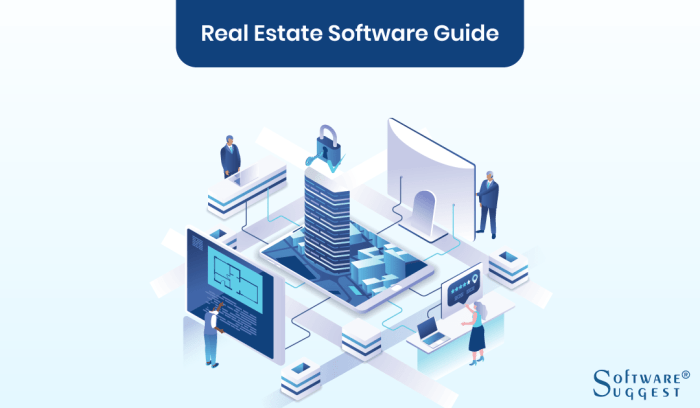The real estate industry is dynamic and competitive. To thrive, brokers need more than just a keen eye for property and strong negotiation skills. They need efficient tools to manage their business, nurture client relationships, and ultimately, close more deals. This is where real estate broker CRM software steps in, offering a centralized hub for managing all aspects of your real estate business.
This comprehensive guide will delve into the world of real estate CRM software, exploring its features, benefits, and how to choose the right solution for your needs.
Understanding the Power of a Real Estate CRM
A Customer Relationship Management (CRM) system, specifically designed for real estate brokers, is far more than just a contact list. It’s a powerful tool that streamlines workflows, automates tasks, and provides valuable insights into your business performance. Think of it as your virtual assistant, constantly working to improve your efficiency and profitability. Key features typically include:
Core Features of Real Estate CRM Software:, Real estate broker crm software
- Contact Management: Centralized storage and organization of client information, including contact details, property preferences, transaction history, and communication logs. This ensures you never miss a crucial detail.
- Lead Management: Efficiently capture, qualify, and nurture leads from various sources (website forms, open houses, referrals). Track lead progress and prioritize high-potential prospects.
- Deal Management: Manage the entire sales process from initial contact to closing, tracking key milestones, deadlines, and associated documents. This provides a clear overview of your sales pipeline.
- Marketing Automation: Automate email marketing campaigns, drip sequences, and other communication efforts to nurture leads and stay top-of-mind with clients. This saves valuable time and increases engagement.
- Transaction Management: Streamline the complexities of real estate transactions by tracking documents, deadlines, and communication related to each deal. This minimizes errors and delays.
- Reporting and Analytics: Gain valuable insights into your business performance with customizable reports and dashboards. Track key metrics such as conversion rates, lead sources, and sales performance.
- Team Collaboration: Facilitate seamless collaboration among team members by sharing information, assigning tasks, and tracking progress on deals. This improves team efficiency and communication.
- Integration Capabilities: Seamless integration with other essential tools, such as email marketing platforms, IDX feeds, and property management systems, to create a unified workflow.
- Mobile Accessibility: Access your CRM from anywhere, anytime, using a mobile app. This ensures you’re always connected to your clients and business.
Benefits of Implementing a Real Estate CRM
Investing in a robust real estate CRM offers a multitude of benefits that directly impact your bottom line and overall success. These include:
- Increased Productivity: Automation of repetitive tasks frees up your time to focus on higher-value activities, such as building relationships and closing deals.
- Improved Client Relationships: Personalized communication and proactive follow-up nurture client relationships, leading to increased loyalty and referrals.
- Enhanced Lead Conversion Rates: Efficient lead management and targeted marketing campaigns increase the likelihood of converting leads into clients.
- Better Sales Performance: Tracking key metrics and analyzing sales data provides valuable insights to improve sales strategies and boost performance.
- Streamlined Workflows: Centralized information and automated processes streamline workflows, reducing errors and improving efficiency.
- Data-Driven Decision Making: Access to real-time data and analytics enables data-driven decision-making, leading to better strategic planning.
- Improved Team Collaboration: Seamless information sharing and task management improve team communication and collaboration.
- Reduced Administrative Overhead: Automation of administrative tasks reduces the time and resources spent on manual processes.
Choosing the Right Real Estate CRM Software
Selecting the right CRM software requires careful consideration of your specific needs and budget. Here are some key factors to consider:
Key Considerations When Selecting a Real Estate CRM:
- Scalability: Choose a CRM that can grow with your business, accommodating increasing numbers of contacts and transactions.
- Features: Ensure the CRM offers the essential features you need, such as contact management, lead management, deal management, and marketing automation.
- Integrations: Check for integration capabilities with other tools you use, such as email marketing platforms, IDX feeds, and property management systems.
- User-Friendliness: Select a CRM with an intuitive interface that is easy to learn and use, even for less tech-savvy users.
- Cost: Consider the overall cost of the CRM, including subscription fees, implementation costs, and ongoing support.
- Customer Support: Choose a vendor that provides excellent customer support, including readily available documentation and responsive technical assistance.
- Security: Ensure the CRM provider has robust security measures in place to protect your sensitive client data.
Popular Real Estate CRM Software Options: Real Estate Broker Crm Software
The market offers a wide range of real estate CRM software solutions. Research and compare different options to find the best fit for your business. Some popular choices include (Note: This is not an exhaustive list and specific features and pricing may vary):
- Top Producer CRM: Known for its robust features and extensive integrations.
- Chime CRM: A popular choice for its user-friendly interface and focus on lead generation.
- Follow Up Boss: Excellent for its focus on lead nurturing and follow-up automation.
- kvCORE: A comprehensive platform offering a wide range of features, including IDX integration and marketing tools.
- BoomTown: Known for its lead generation capabilities and advanced marketing automation features.
Frequently Asked Questions (FAQ)
- Q: What is the average cost of real estate CRM software? A: The cost varies widely depending on the features, the number of users, and the vendor. Expect to pay anywhere from a few hundred dollars per month to several thousand dollars per month for enterprise-level solutions.
- Q: How long does it take to implement a real estate CRM? A: Implementation time varies depending on the complexity of the system and the size of your business. It can range from a few days to several weeks.
- Q: Do I need training to use real estate CRM software? A: Most vendors offer training resources, such as online tutorials, webinars, and dedicated support teams. The ease of use depends on the specific software chosen.
- Q: Can a real estate CRM integrate with my existing systems? A: Many CRMs offer integration capabilities with various third-party tools, such as email marketing platforms, IDX feeds, and property management systems. Check the specific integrations offered by the CRM you are considering.
- Q: What are the key metrics I should track in my real estate CRM? A: Key metrics include lead conversion rates, sales cycle length, average deal size, client acquisition cost, and customer lifetime value.
Conclusion
Investing in a real estate broker CRM software is a strategic move that can significantly enhance your business operations, improve client relationships, and ultimately drive greater success. By carefully considering your needs and choosing the right solution, you can leverage the power of a CRM to streamline your workflows, boost your productivity, and achieve your real estate goals. Don’t wait – explore the options available and take the first step towards a more efficient and profitable real estate business!

Source: amazonaws.com
Call to Action
Ready to transform your real estate business? Explore the top real estate CRM solutions today and request a demo to see how they can benefit you. Click here to start your search!
Question & Answer Hub
What are the key features to look for in real estate CRM software?
Essential features include contact management, lead tracking, deal management, marketing automation, reporting and analytics, and integration with other real estate tools.
How much does real estate CRM software typically cost?
Pricing varies widely depending on features, scalability, and vendor. Expect to find options ranging from affordable monthly subscriptions to more expensive enterprise solutions.
Is CRM software difficult to learn and use?
Most modern CRMs are designed with user-friendliness in mind. Many offer intuitive interfaces and comprehensive training resources to ease the learning curve.
Can a CRM integrate with my existing marketing platforms?

Source: 4qt.com
Many CRMs offer integrations with popular marketing tools and platforms, allowing for seamless data flow and automation.
What are the security measures in place to protect client data?
Reputable CRM providers prioritize data security with measures such as encryption, access controls, and regular security audits.
